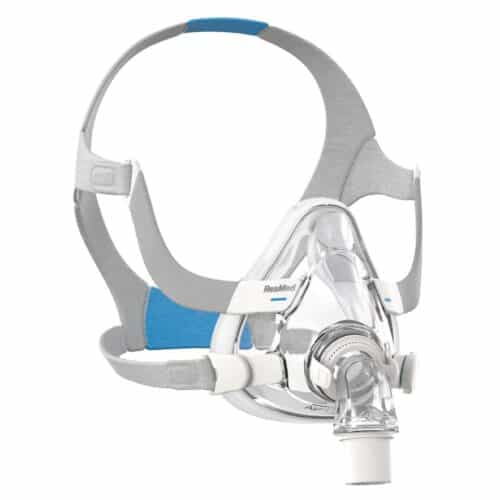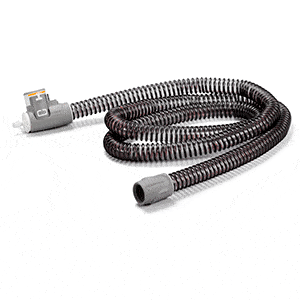Get 10% off your order!
Sign up below for PAP’s Newsletter, and keep an eye on your inbox for a one-time code. Offer not available on sale items.
Both men and women suffer from sleep apnea. However, studies show that men are more likely to develop this condition than women.
Sleep apnea is a serious disorder that requires close attention, evaluation, and treatment. Since men are more prone to it than women are, they need to take extra care to identify the symptoms.
Here is what you need to know about men and sleep apnea.
According to the Mayo Clinic, men are two to three times more likely to have sleep apnea than women. Many studies have been done to identify the reasons for the gender difference:
– Men have a more vulnerable upper airway and increased pharyngeal airway length.
– The anatomic structure of the upper airway in men is different, making men’s airways more likely to collapse during sleep.
– Female hormones (progesterone) stimulate the activity of the genioglossus muscle, thus increasing upper airway stability.
However, men are also less likely to report sleep apnea symptoms and undergo a sleep study to get diagnosed. Perhaps it’s that many men believe that snoring is normal and nothing to worry about. And it may also have something to do with that unpleasant and lingering stigma about sleep apnea, which many are wary of admitting to others, let alone themselves.
If sleep apnea is left untreated, symptoms could worsen, leading to serious consequences, such as:
Erectile dysfunction — while there isn’t any scientific proof of why it happens, studies show that men with obstructive sleep apnea have higher rates of erectile dysfunction. Most likely, the lack of sleep causes testosterone levels to go down.
High blood pressure — for men who already suffer from high blood pressure, sleep apnea can make it worse. Men who receive treatment for apnea tend to notice improvements in their blood pressure.
Heart attack — men with obstructive sleep apnea are more likely to have heart attacks than men who don’t. Sleep apnea disrupts your oxygen intake, making it hard for the brain to control the blood flow.
Type 2 diabetes — men with type 2 diabetes who suffer from sleep apnea are at high risk for future cardiovascular disease. While apnea treatment can’t prevent diabetes, it can reduce the risk for heart problems.
Weight loss problems — obesity and sleep apnea go hand in hand. Being overweight is a risk factor for sleep apnea. Meanwhile, sleep apnea can make it hard to lose weight. When you have sleep apnea, your body produces more ghrelin (“hunger trigger”) hormone, which makes you want to eat more.
Chronic obstructive pulmonary disease (COPD) — coupled with obstructive apnea, this condition can raise your chances of developing pulmonary hypertension, hypercapnia, and fatigue.
Overall, if not treated in a timely manner, sleep apnea can lead to serious health problems. That’s why it’s imperative to consult a doctor and arrange a sleep study as soon as you notice any sleep apnea symptoms.
Both men and women have similar sleep apnea symptoms. However, they are often more prominent in men.
Loud Snoring – Sleep apnea-related snoring is continuous, insistent, loud, and oftentimes includes gasping, snorting, wheezing, or other sounds that indicate a breathing struggle
Morning Headaches – Oxygen deprivation caused by sleep apnea can trigger painful headaches that usually diminish after a normal breathing pattern kicks in. This is more common in women, but men can suffer as well.
Mood Instability – Good sleep helps to regulate emotions which allows for better concentration. Otherwise, men can become irritable, forgetful, and moody due to sleep apnea.
Persistent fatigue, daytime sleepiness or Hypersomnia
Dozing Off Throughout the Day – The lack of restful sleep at night can cause some men to doze off while driving, which is extremely dangerous for everyone, especially truck drivers
Persistent Urination — Men who suffer from sleep apnea tend to urinate often throughout the night
If you have noticed any of these symptoms, consider an at home sleep study like WatchPAT. WatchPAT sleep tests are used to analyze and identify if a person is suffering from sleep apnea, and even monitor the metrics of your breathing.
While many treatments for sleep apnea exist, the most common one is using CPAP therapy. Short for continuous positive airway pressure, CPAP therapy uses a CPAP machine and CPAP mask to increase air pressure in the throat, keeping the airways open and breath flowing consistently.
Other treatments include:
– Oral appliances to keep the throat open
– Using supplemental oxygen
– Surgery
However, in the majority of cases, CPAP therapy is always the first choice when treating sleep apnea. While they may take some getting used to, these machines can improve your quality of life tremendously.
To learn more about treatment options for sleep apnea in men, give us a call at 833-216-CPAP, email us at sleeptight@cpaprx.com, or live chat with us directly on the site. We look forward to helping Simplify Your Sleep!


Sign up below for PAP’s Newsletter, and keep an eye on your inbox for a one-time code. Offer not available on sale items.
SUBSCRIBE TO OUR NEWSLETTER Receive exclusive offers & insightful articles to enhance your sleep.
Search by product name, type or brand.
